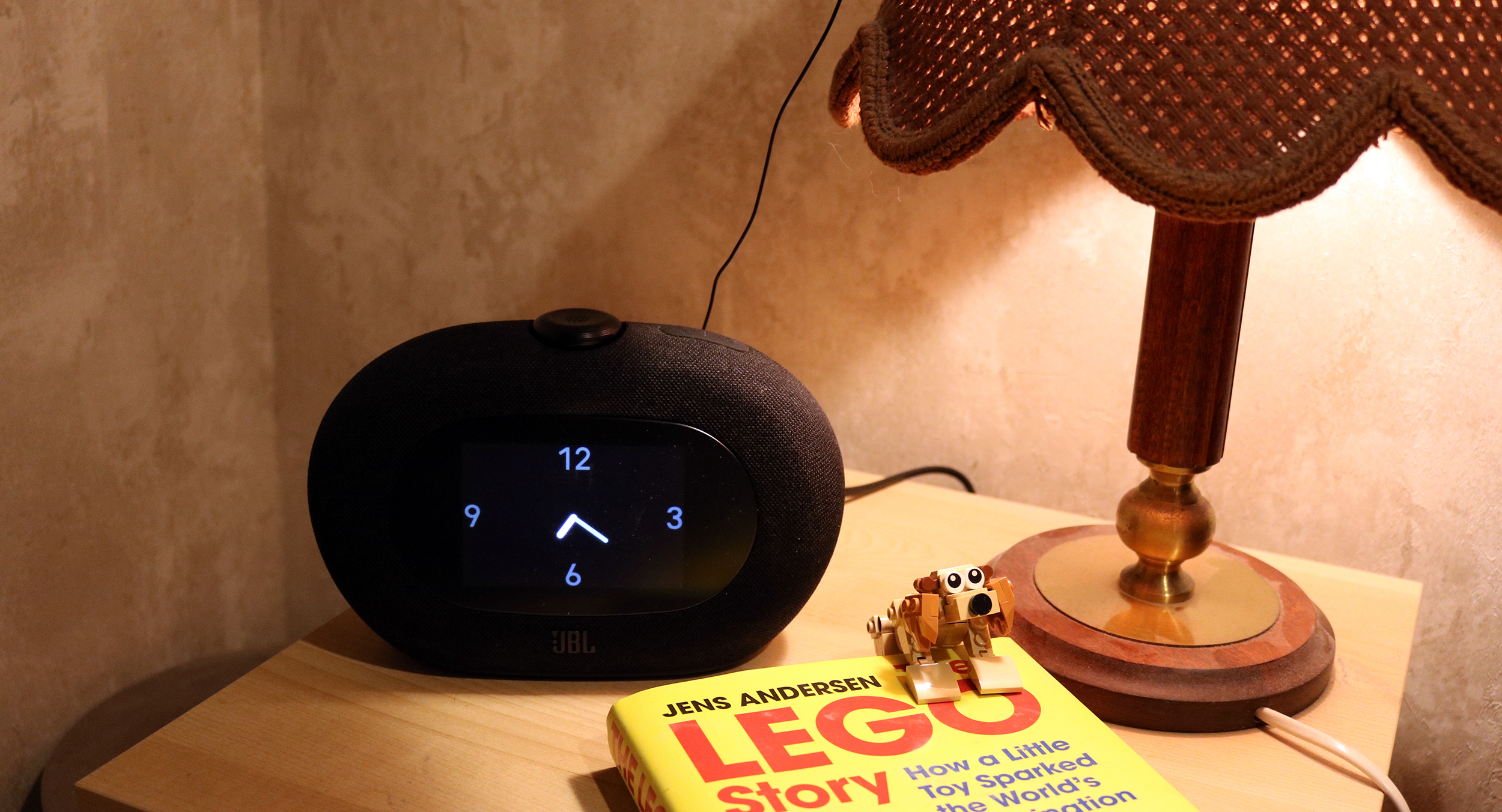TL;DR
Is your phone alarm still waking you up? JBL's Horizon 3 smart clock radio aims to change that with impressive stereo sound, a built-in sunrise simulator light, and a handy USB charging port. While it boasts great audio quality and a sleek design, the short ambient sound loops, lack of battery backup, and inability to set personal music alarms hold it back from perfection. Can this modern take on a classic device truly replace your smartphone? Discover its full potential and shortcomings in our in-depth review!
The clock radio emerged in the 1940s, gaining widespread adoption by the 1960s. For many, its relevance diminished significantly with the advent of mobile phones, which readily assumed the role of the primary alarm device. Consequently, dedicated alarm clocks became less common.
This context made the opportunity to test the Horizon 3 from JBL particularly intriguing. The central question became: can a dedicated alarm clock offer distinct advantages over a mobile phone for daily wake-up routines?
First Impression
Upon unboxing, the device’s physical dimensions were more substantial than anticipated. While a smaller form factor might have been expected, the unit measures 20 centimeters wide and approximately 12 centimeters high. Its noticeable weight suggests the presence of robust internal audio components.
Consistent with contemporary devices, an accompanying application is available for download, which was initiated during the power connection process. A notable observation is the absence of an internal battery, as the unit operates exclusively via mains power. This design choice limits its portability to locations with readily available electrical outlets.
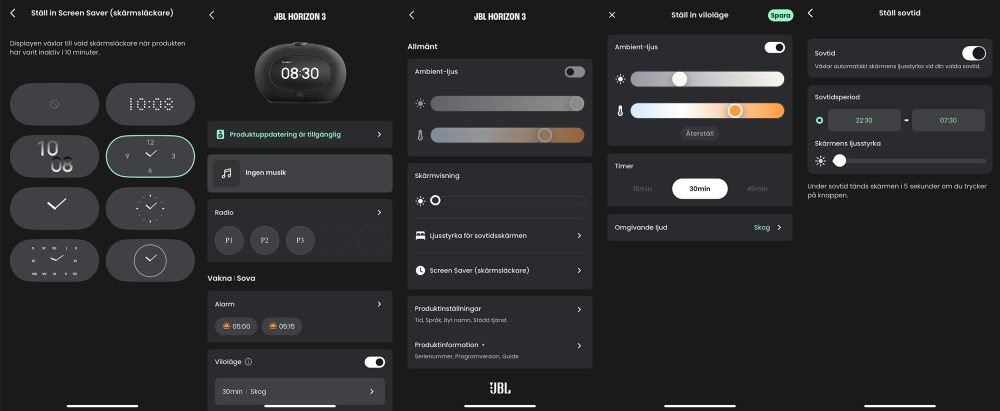
Features and Sound Quality
The Horizon 3 incorporates JBL’s stereo sound architecture, featuring two 1.5-inch transducers and dual passive radiators, which together deliver a remarkably rich and robust audio experience. Connectivity is facilitated by Bluetooth 5.3 and Auracast, supporting multi-speaker setups with compatible JBL or Harman devices.
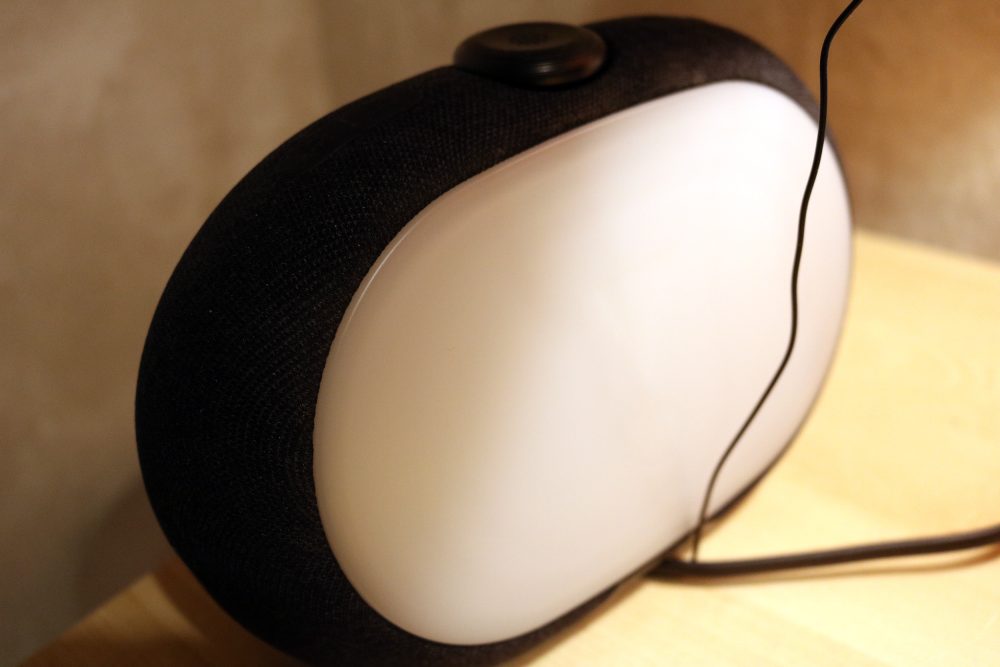
Key features of the clock radio include dual alarms, a snooze function, and a sleep mode offering radio or soothing ambient sounds (a point further discussed below). It also integrates a USB-C port for charging mobile phones or tablets. A rear-mounted LED lamp provides adjustable brightness, functioning as both a night light and a simulated sunrise wake-up light. Configurations can be managed either directly via physical buttons on the unit or through the dedicated application, which also allows for granular control over EQ and lighting parameters. The light’s color temperature is continuously adjustable to the user’s precise preference.
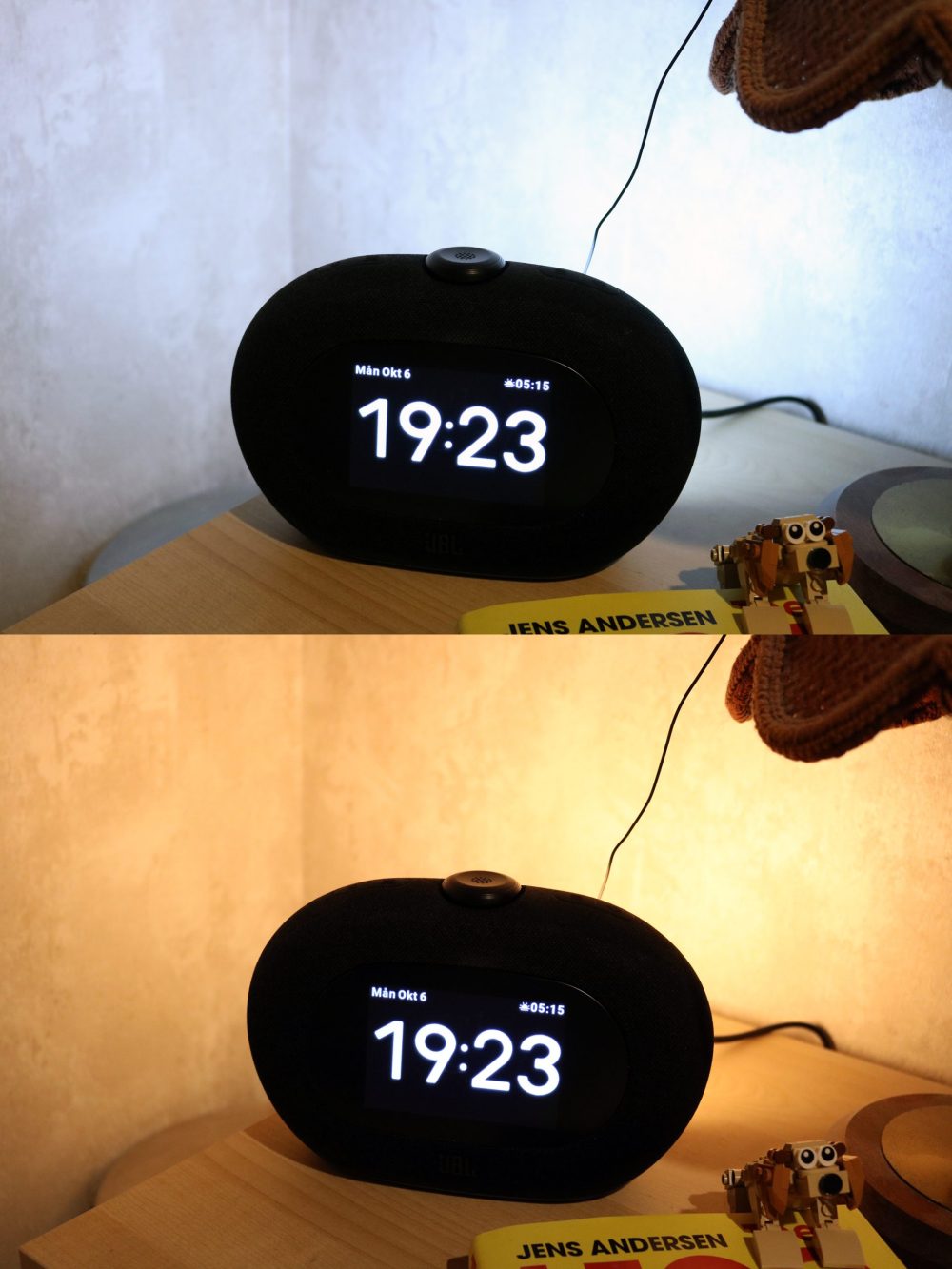
Limitations and Missed Opportunities
A significant area for improvement in the Horizon 3 from JBL concerns certain fundamental design choices. As noted previously, while the device offers soothing ambient sounds as an alternative to radio, these audio clips are exceedingly brief, thereby detracting from their intended calming effect due to rapid looping. Considering the minimal cost of modern memory storage, the inclusion of longer audio sequences – or at least the capability to download and integrate custom content – appears to be a notable oversight. This is particularly evident given the existing plethora of customizable screensavers available for the radio’s idle state.
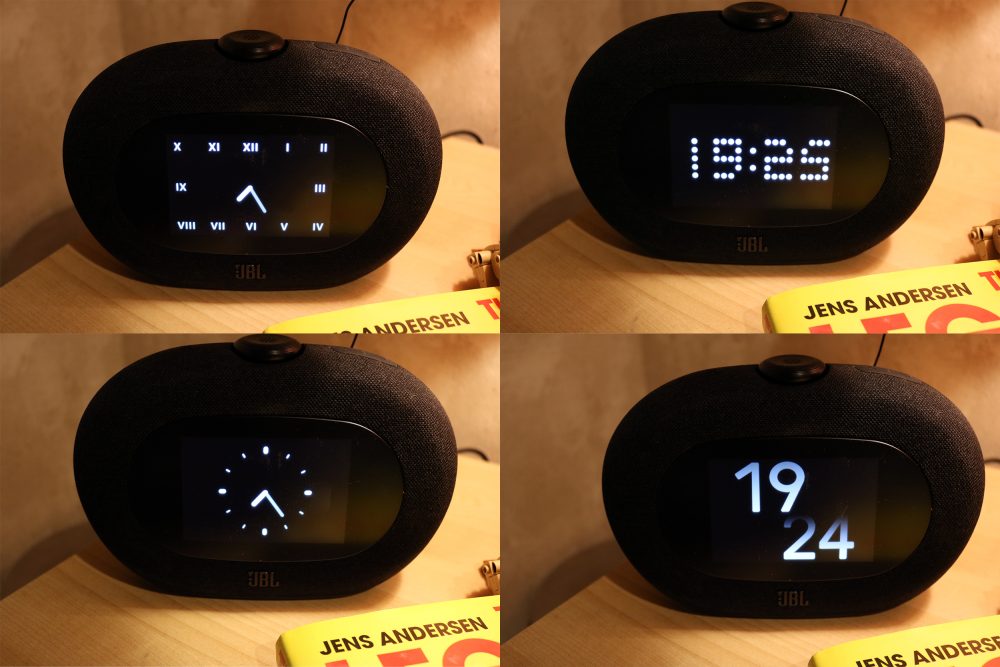
Another perplexing omission is the inability to configure the alarm with personal music sources, such as Spotify or local device audio. Users seeking a musical wake-up are restricted to broadcast radio channels. Furthermore, the provided antenna is notably short; during testing, optimizing reception required unconventional positioning, such as extending it towards the integrated lamp, to achieve clear audio. This limitation is particularly regrettable given the otherwise robust build quality and impressive audio output of the Horizon 3, which delivers a rich sound profile with excellent bass response.
In summary, the Horizon 3 presents a compelling proposition, despite certain limitations. The experience of waking to music, even with restricted source options, combined with the gradual illumination feature, creates a genuinely pleasant and comfortable awakening environment. However, the overall rating is somewhat tempered by the brevity of the ambient sound clips, the absence of battery operation, and the lack of personalized music choices for alarms.
JBL provided a review unit for this test. The sender of the material has no editorial influence on our tests; we always write independently with our readers and consumers in focus.
